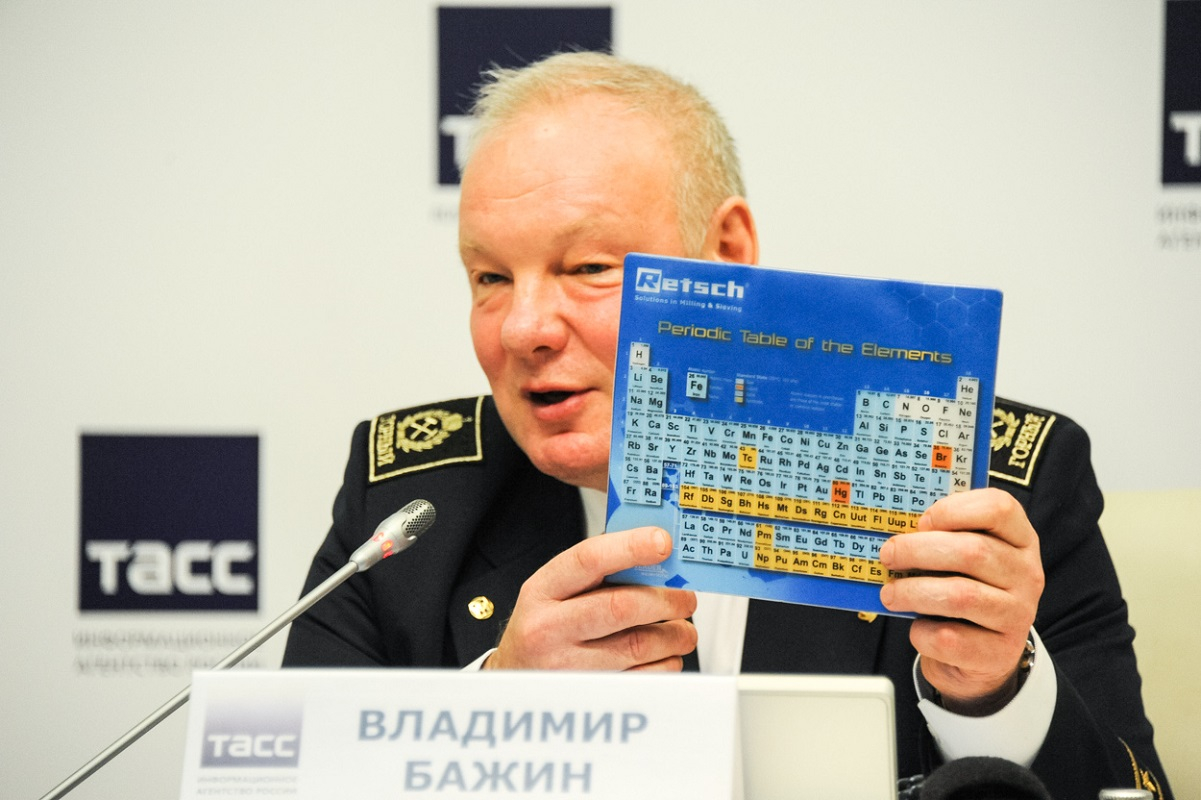How is the University going to celebrate the International Year of the Periodic Table of chemical elements?

As resolved by the UN, 2019 is the International Year of the Periodic Table of chemical elements. During a press conference held at the TASS news agency, Irina Balova, Director of the Institute of Chemistry at St Petersburg University, talked about the significance of this fact for the entire world community.
On January 29, at UNESCO headquarters in Paris, France, the opening ceremony of the International Year of the Periodic Table took place, and this kicked off a worldwide celebration of achievements in the natural sciences. Exactly 150 years ago, Dmitry Mendeleev, a professor at St Petersburg University, discovered a law establishing the correlation between the properties of the chemical elements and their atomic weights. Three years ago, the Russian Chemical Society, the Russian Academy of Sciences and the Ministry of Education and Science of the Russian Federation moved to confer this title on 2019 as a milestone year in Chemistry.
According to Irina Balova, Director of the Institute of Chemistry at St Petersburg University, celebration of this date will serve to generate a positive news agenda and to create a dialogue between different peoples and countries throughout the world. “It will allow us to form the notion in people’s minds that science is integral to the enduring and favourable development of society and our entire civilisation,” Ms Balova noted. “It is a force that brings people together and gives them new opportunities as it moves forward.”
The proclamation that 2019 is the Year of the Periodic Table will help to improve the image of Russian science and education not only in the international arena but also within the country itself.
Irina Balova, Director of the Institute of Chemistry at St Petersburg University
The programme of the International Year of the Periodic Table is packed with many different activities. In Russia alone, more than 500 events have already been planned at different levels, from major academic conferences to open lessons. In April, St Petersburg University will host the International Mendeleev Olympiad in Chemistry for schoolchildren, and in May it will become one of the sites for the Second All-Russian Chemistry Dictation. And, in keeping with tradition, the 75th Annual Mendeleev Readings will also take place. Valentin Parmon, chairman of the Siberian branch of the Russian Academy of Sciences, will make a presentation on this occasion. But the key event of this year will be the 21st Mendeleev Congress, which will be held in St Petersburg on September 9-13 and will bring together around 2,000 scholars from all over the world. The foremost chemistry congress in the country, it has taken place since 1907, uniting science, education and industry. Yulia Gorbunova, a corresponding member of the Russian Academy of Sciences and vice-president of the Russian Chemical Society, said that this year’s congress will be devoted in large part to a celebration in honour of Dmitry Mendeleev himself. As a part of the congress, there will be a major international symposium on the history of the Periodic Table and the role played by the famous Russian chemist in its discovery. The brilliance of Mendeleev’s revelation is not only that he arranged all of the elements that were known at the time into a systematic table but that he also predicted the appearance of new ones – at present there are already 118 of them. The leading science historians of our time have agreed to come to the congress and prove to the world community the importance of officially bestowing the name of its founder on the Periodic Table.
The Periodic Table lay the foundation for the discovery of laws in many related sciences, so not only chemists will be participating in the Mendeleev Congress but also representatives of other academic fields: geology, physics, biology and medicine. Cross-disciplinary workshops will be open to visitors to the congress, notably in astrophysics and nuclear medicine, and there will also be roundtable discussions devoted to basic chemistry, energetics and the development of new materials.
As part of the congress, there will be a symposium of Nobel laureates, in which Jean-Pierre Sauvage and Bernard Feringa have already agreed to take part. They won this prestigious prize in 2016 for designing and synthesising molecular machines.
At the same time as the Mendeleev Congress, a satellite international conference, Mendeleev-2019, will be held at St Petersburg University. This conference takes place every other year and draws an audience of more than 600 people. “Youth science, which includes chemistry, is a significant phenomenon in Russia and is growing rapidly at St Petersburg University,” Ms Balova pointed out. “Such conferences are essential for young participants, as they allow them to make professional contacts with their future colleagues and partners and to do some meaningful research. There is no question that the traditions of chemistry are important, but its history needs a worthy continuation. And those great scientists who have worked at the University and are the pride of Russian science have provided one.”

